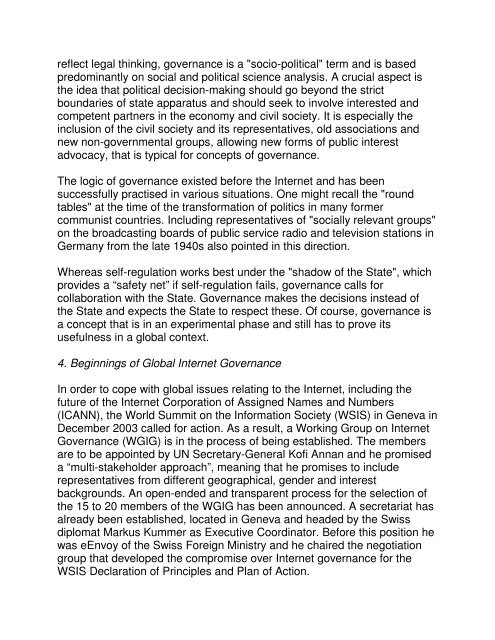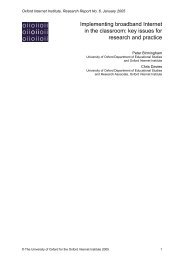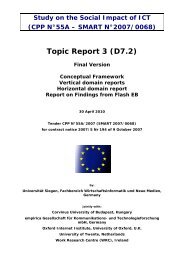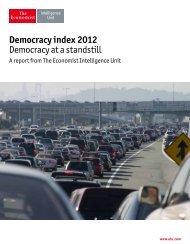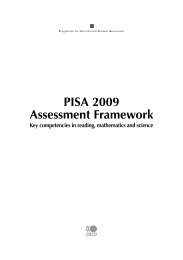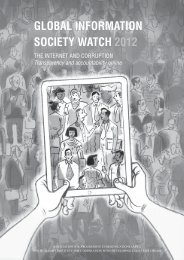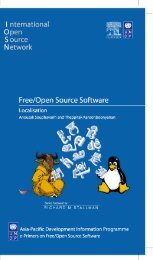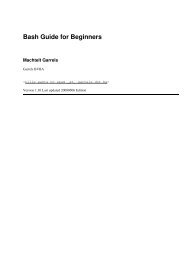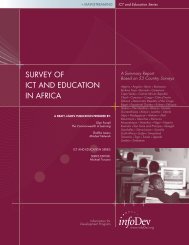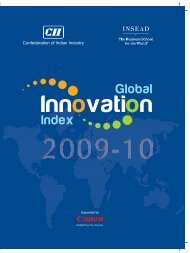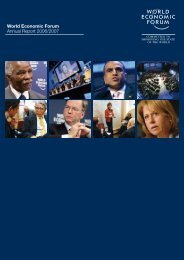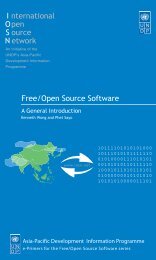Hans J. Kleinsteuber State â Regulation â Media OSCE Conference ...
Hans J. Kleinsteuber State â Regulation â Media OSCE Conference ...
Hans J. Kleinsteuber State â Regulation â Media OSCE Conference ...
You also want an ePaper? Increase the reach of your titles
YUMPU automatically turns print PDFs into web optimized ePapers that Google loves.
eflect legal thinking, governance is a "socio-political" term and is basedpredominantly on social and political science analysis. A crucial aspect isthe idea that political decision-making should go beyond the strictboundaries of state apparatus and should seek to involve interested andcompetent partners in the economy and civil society. It is especially theinclusion of the civil society and its representatives, old associations andnew non-governmental groups, allowing new forms of public interestadvocacy, that is typical for concepts of governance.The logic of governance existed before the Internet and has beensuccessfully practised in various situations. One might recall the "roundtables" at the time of the transformation of politics in many formercommunist countries. Including representatives of "socially relevant groups"on the broadcasting boards of public service radio and television stations inGermany from the late 1940s also pointed in this direction.Whereas self-regulation works best under the "shadow of the <strong>State</strong>", whichprovides a “safety net” if self-regulation fails, governance calls forcollaboration with the <strong>State</strong>. Governance makes the decisions instead ofthe <strong>State</strong> and expects the <strong>State</strong> to respect these. Of course, governance isa concept that is in an experimental phase and still has to prove itsusefulness in a global context.4. Beginnings of Global Internet GovernanceIn order to cope with global issues relating to the Internet, including thefuture of the Internet Corporation of Assigned Names and Numbers(ICANN), the World Summit on the Information Society (WSIS) in Geneva inDecember 2003 called for action. As a result, a Working Group on InternetGovernance (WGIG) is in the process of being established. The membersare to be appointed by UN Secretary-General Kofi Annan and he promiseda “multi-stakeholder approach”, meaning that he promises to includerepresentatives from different geographical, gender and interestbackgrounds. An open-ended and transparent process for the selection ofthe 15 to 20 members of the WGIG has been announced. A secretariat hasalready been established, located in Geneva and headed by the Swissdiplomat Markus Kummer as Executive Coordinator. Before this position hewas eEnvoy of the Swiss Foreign Ministry and he chaired the negotiationgroup that developed the compromise over Internet governance for theWSIS Declaration of Principles and Plan of Action.


